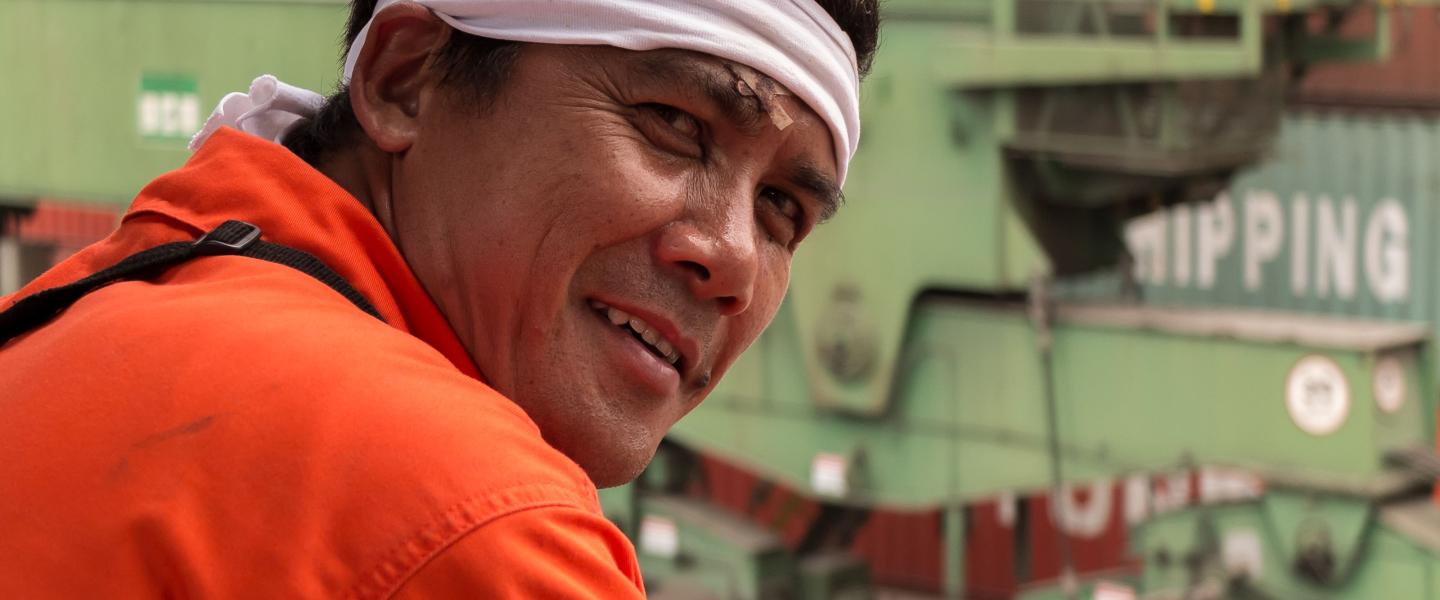In a world in which people both ashore and at sea are experiencing increased mental health pressures post-COVID-19, alongside the impacts of natural disasters and military conflicts, a significant shift is underway across the intersection of legal frameworks, stigma, crisis support and suicide prevention.
The recent wave of countries decriminalising suicide is not just a legal manoeuvre; it's a powerful statement acknowledging that mental health is a universal human right and people experiencing a crisis deserve understanding, support, and care no matter who they are, where they are, or where they are from.
Ghana's decision to decriminalise suicide, following in the footsteps of Malaysia, Guyana, and Pakistan, illustrates a global movement to dismantle out-of-date laws. For instance, Ghana's laws were introduced through the British Penal Code during colonialisation and deemed suicide an offence punishable by imprisonment or fines. The repeal of these laws marks a victory for advocates who have long argued that suicide should be regarded as a mental health issue, not a criminal act.
Each year, over 700,000 lives are lost to suicide globally, predominantly in low- and middle-income countries. Research shows laws that criminalise suicide are an ineffective deterrent to suicide, instead creating barriers to individuals seeking help while discriminating against them and perpetuating stigma and ill-informed attitudes towards those experiencing a suicidal crisis.
Life at sea presents its own challenges, including abandonment, forced labour, refugees, economic migrants, human trafficking, and abuse.
The International Maritime Health Journal estimated that between 5% and 18.3% of deaths at sea in 2012 were linked to suicide, a staggering statistic when considering that approximately 30 million people are at sea at any given time.
This means that potentially, over 5 million men, women, and children at sea may be grappling with thoughts of taking their own lives.

Criminalisation not only denies individuals on land and sea their right to non-judgemental support but also compounds their suffering by branding their distress as criminal. This approach obstructs the path to immediate support and longer-term health treatments. They ultimately undermine suicide prevention efforts.
The removal of these laws fosters environments where individuals are empowered to seek help without fear of legal consequences. Nations taking this step are making a profound commitment to the wellbeing of their citizens both ashore and at sea.
Cultural shifts, however, come with challenges. Where changes have been made to decriminalise suicide, coordinated efforts from policymakers, mental health professionals, and communities have occurred. Decriminalisation paves the way for open dialogues on social and cultural factors and ways to destigmatise mental health crises and conditions. These can be challenging conversations.
LifeLine International is having these conversations.
In 2023, Lifeline International is embarking on a global campaign to decriminalise suicide worldwide, aimed at destigmatising suicide prevention and ensuring the establishment of readily available crisis support services across the world.
They hope to work with individuals and organisations in countries where suicide remains a crime, or where crimes remain unclear, to advocate for meaningful legislative change. Through legislative changes and the establishment of permanent, well-funded and resourced crisis interventions, they hope to prevent suicide, save lives, and offer hope to those in distress, no matter their location.
In countries where decriminalisation of suicide is occurring, crisis support systems are expanding, helplines are being enhanced, and mental health budgets are being allocated to community organisations. While decriminalisation is not a cure, it stands as a testament to progressive change, offering a glimmer of hope for all individuals who experience a crisis.
LifeLine International states the importance of crisis support services, like those delivered by their Members, cannot be overstated. They are the lifelines that bridge the gap between despair and hope, offering immediate assistance to those in their darkest hours. Crisis lines provide a critical touchpoint in the journey towards mental health. They offer a compassionate ear, a non-judgmental space, and a source of comfort for individuals in crisis. This becomes even more essential after decriminalisation, as individuals feel safer to reach out without fear of legal repercussions.

As countries progress towards decriminalisation, LifeLine International stands ready to play a pivotal role in this transformation. These services offer a space where individuals can disclose their struggles openly and seek the support of others during their darkest moments, drawing on the foundation of empathy and understanding.
As more countries join this movement to decriminalise suicide, a new global chapter is being written - one that prioritises mental health as an essential part of human wellbeing and a universal human right. The union of decriminalisation and crisis support is not just about legal change, it's a testament to humanity's collective commitment to lifting each other up in times of need.
About: LifeLine International operates a network of over 200 LifeLine Centres through 27 Members in 23 countries, with a growing presence worldwide. The network comprises of 28 independent Member organisations that cover every region across high-, middle-, and low-income nations. LifeLine International and its Members collaborate to ensure that suicide prevention resources are available in more places with greater access and reduced barriers with the objective is to help more people worldwide with access to crisis support when they need it the most. international stakeholders on suicide prevention, crisis lines, and addressing the barriers of social stigma and ending the criminalisation of suicide.
Contact: If you have any questions, please write to us at enquiries@humanrightsatsea.org
About Sharing. We welcome the use and dissemination of our work with proper accreditation. Please ensure that our Terms of Use are conformed with at all times.
Please support Human Rights at Sea today by CLICKING HERE
